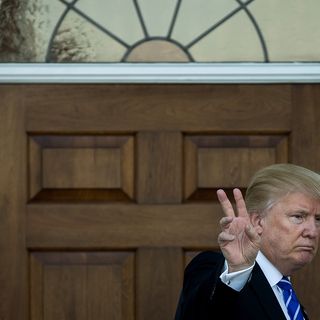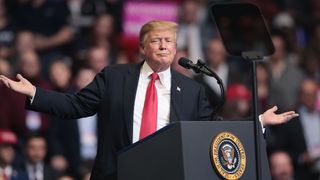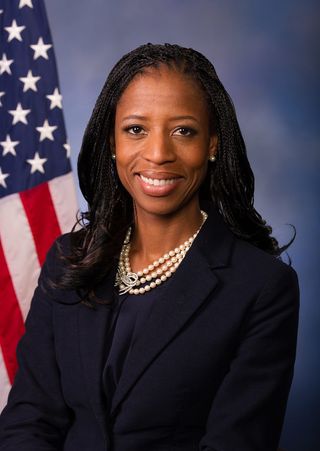At the start of the 2016 presidential election cycle, Donald Trump’s candidacy was largely written off. As his campaign gained steam, it ultimately sucked the air out of the room for all other Republican candidates. Resistance to Trump continued until the party convention. Even after he became the nominee, many Republicans remained largely unenthusiastic. I was one of many leaders to call on him to drop out of the race after a crude recording was released just weeks before the election. Of course, despite all this he ultimately became President.
When he assumed office, most elected GOP officials — myself included — didn’t quite know what to expect from him. There were, of course, a few “true believers” who had embraced the President and his agenda early on. And some members of congress co-opted the near constant attention on the President for their own gain by ardently defending him or championing some of his more controversial priorities in congress. Most of us simply hoped for the best.
The impeachment of Donald Trump is dead

After several months of working with the President, it became clear that he intended to support our longstanding primary objectives on healthcare and tax reform. Additionally, his administration moved to aggressively rescind burdensome and overreaching regulations. For Republicans, these were encouraging signs and indicated that he could be trusted to govern as any Republican would. Therefore, many Republican members of congress who were previously reluctant to defend Trump dropped their resistance. Many became advocates.
However, the President also made statements, took actions and advocated for priorities that were — and are — contrary to conservative principles and what the Republican Party has always stood for.
For example, the imposition of tariffs has long been opposed by Republican free-trade advocates. Additionally, emergency declarations to force executive action have been despised by conservatives because they reflect an accumulation of power in the executive branch and a violation of the spirit of the constitution — if not the letter. Republicans also have long believed that a president should be dignified. Instead, Trump has often resorted to name-calling and divisive rhetoric.
Yet, when the President does these things, many Republicans remain silent. Some even offer spirited support. I don’t believe that members of congress should have to respond to everything that the President tweets, says or even does. This would be a full-time job and transform congress from a legislative body into even more of a hotbed of punditry than it already is.
But it is odd to see some elected officials and others advocate for and defend things they previously opposed.
Some have truly come to see things the way the President sees them. Some view Trump and his policies as the new party standard. Others see allegiance to the President as a ticket to greater responsibility. Others do so because it’s the price to pay to achieve the good. And some are simply caught up in tribalism.
Outside of Washington, Republicans primarily support Trump because — although he comes with baggage and has tarnished the party’s brand — he also has pushed for longstanding conservative priorities.
Tribalism also explains why many Democrats reflexively oppose everything the President says or does. On immigration, Democrats previously supported — or at least accepted — several provisions that Trump desires in any immigration reform package. Such provisions could be found in 2013’s “Gang of 8” immigration reform bill. However, their stances on this issue have shifted sharply to the left, making it difficult to reach any compromise.
On many other subjects, the default Democratic Party stance seems to be whatever is the opposite of Trump’s position. This is unhealthy and unsustainable.
Outside of Washington, Republicans primarily support Trump because — although he comes with baggage and has tarnished the party’s brand — he also has pushed for longstanding conservative priorities.
Once he became President, the Republican agenda and Trump’s agenda became intertwined. And Trump has enabled tax reform and many other positive developments.
He also has been more than willing to push back against the media and other sections of what has long been perceived as a liberal establishment.
The alternative to President Trump, at this point, is not a polished, well-spoken, well-behaved Republican who adheres to conservative norms. It is Elizabeth Warren or Bernie Sanders.
It is a more centrally planned economy and trillions in new taxes.
The President will have the support of Republicans in the 2020 election. However, his poll numbers have remained less than 50 per cent despite a strong economy and real wages finally rising.
His pugilistic style has rallied many on the Right but alienated others. His inability to be a leader, reject white supremacy and condemn the mass murder of 50 New Zealand Muslims is shocking to Americans. This shooting was tragic. A violent act whose death toll exceeded that of all the murders in New Zealand in 2017.
The American people are watching the policy promises made by Australian and New Zealand leaders closely. If the White House flips to Democratic powers, the emergency declaration that was used for the border will be used to restrict, remove or replace the second amendment of the US constitution.
The American people are watching the policy promises made by Australian and New Zealand leaders closely. If the White House flips to Democratic powers, the emergency declaration that was used for the border will be used to restrict, remove or replace the second amendment of the US constitution.
Many Democrats seem to view the President’s vulnerability as an outright rejection of traditional Republican principles, even though most of the President’s policies often contradict them. Because of this, they feel comfortable shifting sharply to the left and even adopted Trumpian tactics in advocating for profoundly liberal policies.
American voters are not the ardent liberals that some Democratic candidates believe them to be and will not be welcoming their policies with open arms. Consequently, for those not firmly planted on either end of the political spectrum, the 2020 election may be a difficult choice.
I would not rule out a Trump win. Somehow, his outrageous behaviour continues to work and I promise there are more quiet Trump supporters out there than we think. Trump has done nothing but surprise the world with his ability to dominate the news cycle, day after day.
The reality is that there will never be a perfect president. Fortunately, we have a constitution that anticipates this and protects us from those who would impose their will unilaterally. Regardless of who is president in 2020, my hope is that congress will work harder to protect the constitution and limit executive powers. The US would be a better country if we de-emphasised the role of the president and re-emphasised the role of individual Americans in achieving greatness.
Mia B. Love is a non-resident senior fellow at the United States Studies Centre at the University of Sydney. She served as the US representative for Utah’s 4th district from 2015 to 2019 and was the first black Republican woman to be elected to congress.






